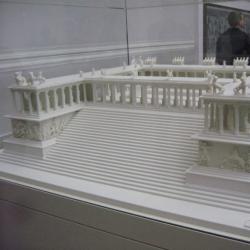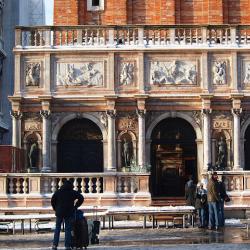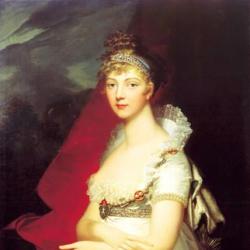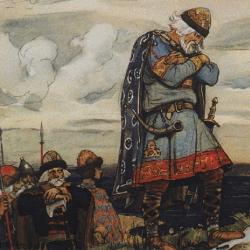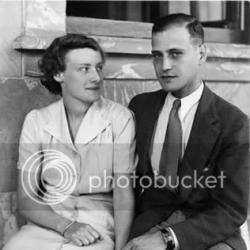Analysis of the poem by A.A. Blok "Oh, I want to live crazy". “Oh, I want to live madly” - an analysis of the poem by Alexander Blok Literary analysis about I want to live madly
Composition
The poem “Oh, I want to live insanely” was written in February 1914, and despite the fact that the First World War was already brewing in the world, it seemed that Blok was only inspired by this. There is a feeling that the poet's hero has just realized that he really lives, and does not exist, thoughtlessly and apathetically. And then he is seized from all sides by feelings and impulses:
Oh, I want to live crazy
Everything that exists - perpetuate,
Impersonal - to humanize,
Unfulfilled - to embody!
The hero feels strong and ready for any challenge, ready for a crazy, hard life:
Let me suffocate in this dream...
... but a life worthy of the worship of descendants:
Perhaps the young man is cheerful
In the future, he will tell about me ...
and further follows the description of the hero in such a way that, perhaps, the author imagines a real person, a hero of his time with bright impulses and a pure soul, ready for crazy deeds for the sake of peace and the good of mankind. And Block
he really believes in such people, so he gives the right to describe his hero to a young man, perhaps in the future the same hero as him:
Hidden engine of it?
He is all a child of goodness and light
He is all - freedom triumph!
The whole poem is read in one breath and very easily. The author seems to deliberately use as few words as possible (filling them with punctuation marks, mostly hyphens) and more rhyme, fearing that the meaning will be buried behind unnecessary words:
Oh, I want to live crazy
Everything that exists - perpetuate,
Impersonal - to humanize,
Unfulfilled - to embody!
Direct speech in the last quatrain helps the reader to understand the main thing that the author was trying to convey to him: what should be his hero, an ideal person. And again he turns to brevity. The author asks a question and answers it himself:
Forgive the gloom - is it
Hidden engine of it?
He is all a child of goodness and light
He is all - freedom triumph!
Epithets in this poem are used little, but very aptly. They point to the contrast between life:
Let heavy sleep choke life
and people living in this world:
Perhaps the young man is cheerful
This helps to understand that no matter how hard life is, basically people try to accept it with a smile on their lips and try to make it easier. And it also shows that no burden of life can fly pure souls, their aspirations and dreams. I think that Blok was one of these souls, and he also perceived all the vicissitudes of fate with a smile and nothing else, but he did not live in the easiest time for Russia. Nevertheless, nothing prevented him from embodying the hero whom he revered:
He is all a child of goodness and light
He is all - freedom triumph!
“Oh, I want to live crazy…” Alexander Blok
Oh, I want to live crazy
Everything that exists - to perpetuate,
Impersonal - incarnate,
Unfulfilled - to embody!Let heavy sleep choke life,
Let me suffocate in this dream, -
Perhaps the young man is cheerful
In the future he will say about me:Forgive the gloom - is it
Hidden engine of it?
He is all a child of goodness and light,
He is all - freedom triumph!
Analysis of Blok's poem "Oh, I want to live insanely ..."
In 1914, Alexander Blok completed work on the Yamba poetic cycle, which he considered one of the most successful and multifaceted. Before its publication, the poet faced the question of what kind of poem to open this literary collection with a pronounced philosophical content. As a result, on February 5, 1914, in just an hour, the poet wrote another poem called “Oh, I want to live crazy ...”, in which, like many of his predecessors, he touched on the role of the poet in society.
True, if Pushkin and Lermontov were convinced that the main goal of any poet was “to burn the hearts of people with a verb”, then Blok did not set himself such global tasks. Moreover, he, completely devoid of vanity, was not at all interested in how exactly people would perceive verses that seemed to be turned inward. Blok did not write in order to make a splash in literary circles and win the hearts of gullible young ladies, who, by the way, fell asleep with portraits of the poet under their pillows and did not let him pass when they met. Much more important for him was the very ability to express his thoughts and feelings in a rhymed form, even if the meaning of the poems was clear only to the author himself.
Therefore, in the work "Oh, I want to live crazy ..." Blok is trying to convey to others the idea, then his dream is to “embodie the unfulfilled”. After all, the "food" for the poet's literary experiments was the emotions that he received from communicating with the outside world. Subsequently, they were transformed into poetic lines, and their author did not care at all what impression they made on admirers of his talent. The poet admits that he is “strangled by a heavy dream of life,” and with this phrase he only emphasizes that he exists, as it were, in two dimensions. The first, familiar and gray, called everyday life, oppresses Blok and sometimes even plunges him into horror. But in his imaginary world, filled with light and joy, the poet feels truly happy.. And he really hopes that some day these pure emotions will be able to catch some "joyful young man" who "in the future will tell about me."
From the side of himself, Blok sees himself as a rather gloomy, withdrawn and difficult person to communicate. However, he prefers to be judged not by appearance and actions, but by poetry. Therefore, characterizing himself, he puts into the mouth of an unknown young man a phrase about how the poet actually feels. “He is all a child of goodness and light, he is all a triumph of freedom!”
This lyric work was written in 1914. This year is memorable for the beginning of the First World War, but significant changes were taking place in the soul of Alexander Blok at that time. Perhaps they are connected with a meeting with L. A. Delmas, who played the part of Carmen.
An analysis of the poem “Oh, I want to live insanely” emphasizes the beauty and significance of the discovery that is taking place in the soul of the lyrical hero and the poet himself. Important changes are taking place in it, which could serve as an occasion for a big change in creativity and destiny.
The state of the lyrical hero
What does he feel and experience? The first thing that attracts attention is a boundless feeling of delight and ecstasy. Since admiration for anything in general is characteristic of Blok's poetry, here it is directed not at a mystical meaning, but at one's own state. Anyone who thinks that the poet sang of a woman in his poems is forced to be disappointed along with Alexander Blok: for him, in fact, the very possibility of serving an abstract idea was of paramount importance.
The lyrical hero is in a state of satisfaction and contentment with himself. He believes in the future, boldly looks at his most secret dreams and thinks of making them come true. The analysis of “Oh, I want to live crazy” reveals the possibilities of the lyrical hero for changes, makes you wonder if he is really ready for them. He is inspired by new thoughts, occupied by lofty dreams and aspirations. He follows the voice of his soul. However, it can be seen that there is nothing concrete in the desires, the poet thinks very broadly and vaguely. The analysis of "Oh, I want to live crazy" only confirms this. He does not make promises to himself to achieve a certain result, but simply speaks into eternity, referring to himself and the higher principle.
A. Blok, "Oh, I want to live crazy"
An analysis of the poem shows the reader how far the lyrical hero is from a real outlook on life. He is still only making plans for a bright future, but, of course, he cannot know what awaits him in the future. In reality, he is still in a sweet illusion, which has not yet come to an end. What does the lyrical hero of Alexander Blok say?

About how a real person should be - without masks, without pretense and lies. But the poet himself is still very far from realizing this intention. It seems that he is aware of the mistakes of the past and wants to realize unfulfilled dreams, but this is only an impulse, no further action follows. The analysis “Oh, I want to live crazy” helps to understand the issue of human existence deeper and better.
Poetic vocabulary
In this lyrical work, few metaphors are used, but all of them are used to the point and emphasize the main idea of the poetic text.
“Life is a heavy dream” means immersion in painful experiences that disturb the heart and poison the soul. How often do we actually find ourselves in such a crushed state, when there is nothing to do, nothing to strive for. Analysis of Blok's poem "Oh, I want to live insanely" reflects the essential problems of being and the meaning of life.

"Child of goodness and light" - this can be interpreted as a desire to gain freedom, become powerful, open up to all its potential possibilities. There is boundless hope for a joyful future, the lyrical hero is ready to look ahead with a smile. The analysis “Oh, I want to live crazy” emphasizes the need for each person to have such an inner search, reinforced by the inner need of the soul for self-expression.
Main thought
The idea for which this poetic masterpiece was created is as follows: a person must live for the sake of high aspirations in order to realize himself in the real, and not a fictional world. He will certainly be able to cope with destructive illusions if he follows the voice of his own heart. We are here to be happy, to realize the best plans and dreams.

Thus, the analysis of Blok's poem "Oh, I want to live insanely" clearly demonstrates to the reader the importance and significance of each individual existence on earth with its own ideas and tasks. You can’t force another person, but you can make life a little kinder and more beautiful, bring new colors and opportunities to it that will delight, pleasantly surprise.
Unlike the works "The Stranger" and "Night, Street, Lantern ...", Blok's cheerful creation "Oh, I want to live crazy" is less popular. The analysis of the poem presented in this article will help to understand how these stanzas stand out among the other works of the poet. It also mentions the history of creation and the influence of the poem on the reader who lived in different eras.
"Oh, I want to live crazy"
It is impossible to analyze a work without reading it:
Oh, I want to live crazy
All that exists is to perpetuate,
Impersonal - incarnate,
Unfulfilled - to embody!
Let heavy sleep choke life,
Let me suffocate in this dream, -
Perhaps the young man is cheerful
In the future he will say about me:
Forgive the gloom - is it
Hidden engine of it?
He is all a child of goodness and light,
He is all - freedom triumph!
History of creation
You need to start the analysis of “Oh, I want to live insanely” by Blok from the date of writing. This is the fifth of February 1914. Having barely finished his poetic cycle “Yamba”, Alexander Alexandrovich thought about what kind of work to open the selection, and as a result, he wrote this poem in just an hour.
The obviously imminent World War I, the strengthening of revolutionary sentiments, as well as the possibility of being drafted into the army, influenced the poet. The oppressive atmosphere had an effect on the poet, who at that time was already prone to decadent moods in his work, as well as to unexpected spiritual upsurges. Recently returned to his homeland after another treatment in France, Blok learns that he can be called up for service. And if a European war starts, even to involve in hostilities. The young man was disgusted by this, and along with it - a great desire to live freely. The poet calls real life a heavy dream in which he is suffocating, and opposes it with an insane desire to live lightly and freely. Probably, this is how Blok wanted to show that despite the sadness that comes through in all the works of the collection, in his soul he is "a child of goodness and light." And in poetry, he is driven precisely by the desire to free himself from the troubles of real life by talking about his feelings.

It should also be noted that at this time Blok was dissatisfied with the decision of his sister Angelina, with whom he had been close friends since 1909, to become a nun and devote his life to this. When Angelina died in 1919, Blok dedicated Yamby to her memory. Analyzing "Oh, I want to live crazy", we can conclude that these opening verses of the collection are inextricably linked with his sister. In his diary, the poet noted that "Angelina began to rule under the influence of her mother." Monasticism seemed to Blok as suffocating as serving in the army.
Analysis
“Oh, I want to live insanely,” Blok wrote in the genre of lyrical poetry in free form, filling it with the philosophical theme of the poet’s personal reflections. The poet himself is the lyrical hero of the work, eagerly dreaming of a full life and freedom, suffocating in a heavy dream of reality. According to the plot of the poem, this Poet hopes that after his death a certain “jolly young man” will read the verse and understand that they were written by a free man, kind and with a bright soul, carried away not by “gloom”, but precisely by the hope of saving everyone from this “gloom” and everything, and first of all himself. By "joyful young man" Blok certainly means a cheerful person of the future, free from the hardships of war and life's misfortunes. By “sullenness” is meant works from the collection “Yamba”, a kind of preface to which Blok’s verse “Oh, I want to live insanely” became a kind of preface.

An analysis from the morphological side shows that the poem is written in iambic tetrameter. Interestingly, the first stanza contains a ring rhyme, while the other two contain a cross rhyme.
The expressive means used by Blok include metaphors (“heavy dream of life”, “child of goodness and light”), epithets (“cheerful”, “madly”), as well as anaphora:
Let heavy sleep choke life,
Let me suffocate in this dream...
Deliberate distortions of words are curious, such as “humanize” (colloquial pronunciation) and “sullenness”.
Criticism
The Yamba cycle was highly appreciated by literary critics, Blok himself considered it his best cycle, subjecting all his work to critical analysis. Oh, I Want to Live Madly, in 1914, was celebrated as "a subtle, philosophical work praising the influence of poets on young minds and hearts as incarnations—perpetuating and humanizing."

After the release of the collection in 1919, after the revolution, “Oh, I want to live crazy” was analyzed by the new government and also highly appreciated. During Blok's lifetime, this poem was praised for being filled with a sincere thirst for life, as well as for its apt description of the "old system" as a suffocating daydream. By the mid-twentieth century, in Soviet textbooks, the analysis of "Oh, I want to live crazy" included an important reference to the "jolly young man" as the main person of the communist future.
Unlike the works "The Stranger" and "Night, Street, Lantern ...", Blok's cheerful creation "Oh, I want to live crazy" is less popular. The analysis of the poem presented in this article will help to understand how these stanzas stand out among the other works of the poet. It also mentions the history of creation and the influence of the poem on the reader who lived in different eras.
"Oh, I want to live crazy"
It is impossible to analyze a work without reading it:
Oh, I want to live insanely: To perpetuate everything that exists, To incarnate the impersonal, To embody the unfulfilled! He is all - a child of goodness and light, He is all - a triumph of freedom!
History of creation
You need to start the analysis of “Oh, I want to live insanely” by Blok from the date of writing. This is the fifth of February 1914. Having barely finished his poetic cycle “Yamba”, Alexander Alexandrovich thought about what kind of work to open the selection, and as a result, he wrote this poem in just an hour.
The obviously imminent World War I, the strengthening of revolutionary sentiments, as well as the possibility of being drafted into the army, influenced the poet. The oppressive atmosphere had an effect on the poet, who at that time was already prone to decadent moods in his work, as well as to unexpected spiritual upsurges. Recently returned to his homeland after another treatment in France, Blok learns that he can be called up for service. And if a European war starts, even to involve in hostilities. The young man was disgusted by this, and along with it - a great desire to live freely. The poet calls real life a heavy dream in which he is suffocating, and opposes it with an insane desire to live lightly and freely. Probably, this is how Blok wanted to show that despite the sadness that comes through in all the works of the collection, in his soul he is "a child of goodness and light." And in poetry, he is driven precisely by the desire to free himself from the troubles of real life by talking about his feelings.

It should also be noted that at this time Blok was dissatisfied with the decision of his sister Angelina, with whom he had been close friends since 1909, to become a nun and devote his life to this. When Angelina died in 1919, Blok dedicated Yamby to her memory. Analyzing "Oh, I want to live crazy", we can conclude that these opening verses of the collection are inextricably linked with his sister. In his diary, the poet noted that "Angelina began to rule under the influence of her mother." Monasticism seemed to Blok as suffocating as serving in the army.
Analysis
“Oh, I want to live insanely,” Blok wrote in the genre of lyrical poetry in free form, filling it with the philosophical theme of the poet’s personal reflections. The poet himself is the lyrical hero of the work, eagerly dreaming of a full life and freedom, suffocating in a heavy dream of reality. According to the plot of the poem, this Poet hopes that after his death a certain “jolly young man” will read the verse and understand that they were written by a free man, kind and with a bright soul, carried away not by “gloom”, but precisely by the hope of saving everyone from this “gloom” and everything, and first of all himself. By "joyful young man" Blok certainly means a cheerful person of the future, free from the hardships of war and life's misfortunes. By “sullenness” is meant works from the collection “Yamba”, a kind of preface to which Blok’s verse “Oh, I want to live insanely” became a kind of preface.

An analysis from the morphological side shows that the poem is written in iambic tetrameter. Interestingly, the first stanza contains a ring rhyme, while the other two contain a cross rhyme.
The expressive means used by Blok include metaphors (“heavy dream of life”, “child of goodness and light”), epithets (“cheerful”, “madly”), as well as anaphora:
... Let the heavy dream choke life, Let me suffocate in this dream ...
Deliberate distortions of words are curious, such as “humanize” (colloquial pronunciation) and “sullenness”.
Criticism
The Yamba cycle was highly appreciated by literary critics, Blok himself considered it his best cycle, subjecting all his work to critical analysis. Oh, I Want to Live Madly, in 1914, was noted as "a subtle, philosophical work praising the influence of poets on young minds and hearts as incarnations - perpetuating and humanizing."

After the release of the collection in 1919, after the revolution, “Oh, I want to live crazy” was analyzed by the new government and also highly appreciated. During Blok's lifetime, this poem was praised for being filled with a sincere thirst for life, as well as for its apt description of the "old system" as a suffocating daydream. By the mid-twentieth century, in Soviet textbooks, the analysis of "Oh, I want to live crazy" included an important reference to the "jolly young man" as the main person of the communist future.

